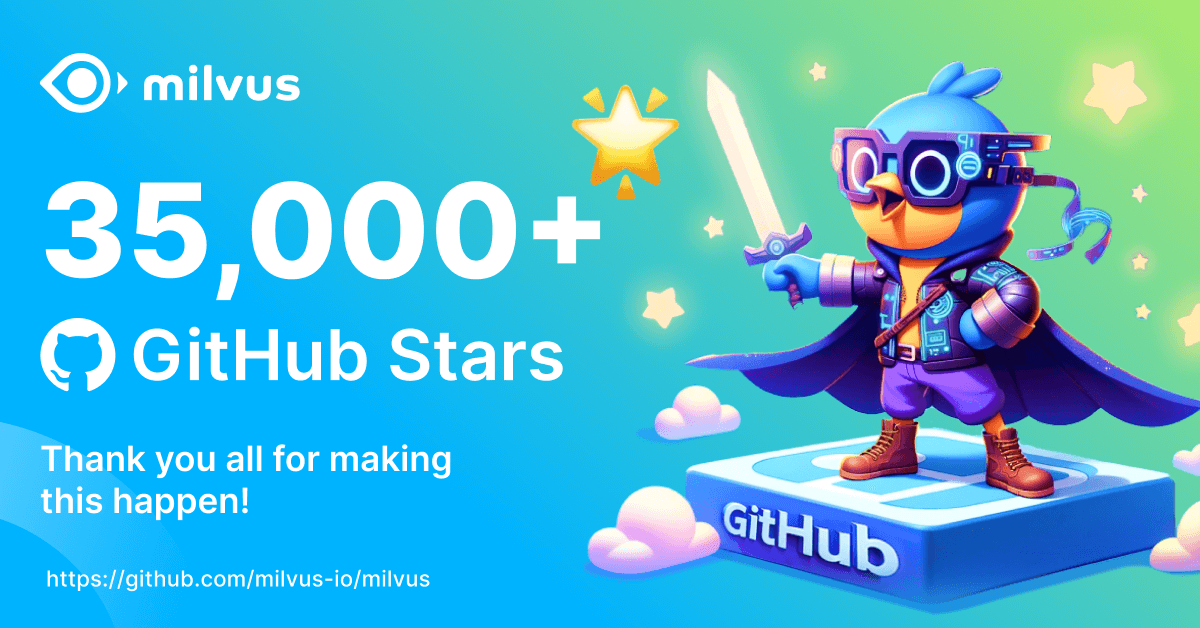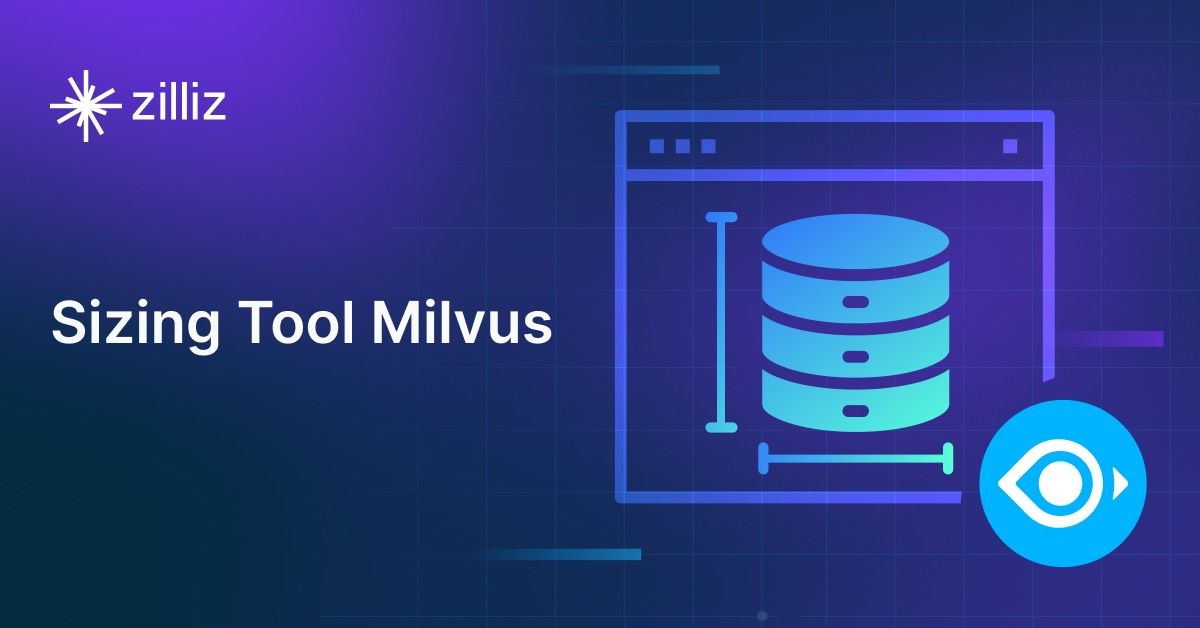Zilliz Cloud vs ClickHouse Choosing the Right Vector Database for Your AI Apps

What is a Vector Database?
Before we compare Zilliz Cloud and ClickHouse, let's first explore the concept of vector databases.
A vector database is specifically designed to store and query high-dimensional vectors, which are numerical representations of unstructured data. These vectors encode complex information, such as the semantic meaning of text, the visual features of images, or product attributes. By enabling efficient similarity searches, vector databases play a pivotal role in AI applications, allowing for more advanced data analysis and retrieval.
Common use cases for vector databases include e-commerce product recommendations, content discovery platforms, anomaly detection in cybersecurity, medical image analysis, and natural language processing (NLP) tasks. They also play a crucial role in Retrieval Augmented Generation (RAG), a technique that enhances the performance of large language models (LLMs) by providing external knowledge to reduce issues like AI hallucinations.
There are many types of vector databases available in the market, including:
- Purpose-built vector databases such as Milvus, Zilliz Cloud (fully managed Milvus)
- Vector search libraries such as Faiss and Annoy.
- Lightweight vector databases such as Chroma and Milvus Lite.
- Traditional databases with vector search add-ons capable of performing small-scale vector searches.
Zilliz Cloud is a purpose-built vector database. ClickHouse is an open-source column-oriented database with vector search capabilities as an add-on. This post compares their vector search capabilities.
Zilliz Cloud: Overview and Core Technology
Zilliz Cloud is a fully managed vector database service built on top of the open-source Milvus engine. It helps developers and organizations to handle large scale AI applications by storing, managing and searching vector embeddings efficiently. It takes care of infrastructure for you, so you can focus on building AI features instead of managing databases.
One of the key advantages of Zilliz Cloud is the automatic performance optimization. The system has AutoIndex technology which will choose the best indexing method for your data and use case. So you don’t have to spend time tuning parameters or comparing different index types. The platform also uses IVF (Inverted File) and graph-based techniques to speed up similarity search across large datasets.
The platform has enterprise features. You can deploy your vector databases across AWS, Azure or Google Cloud, with options to use Zilliz’s fully managed service or bring your own cloud account (BYOC). For organizations that handle sensitive data, Zilliz Cloud has security controls like encryption, access management and compliance tools. The system also supports different consistency levels so you can balance between fast updates and strong data consistency based on your needs.
Cost management is another important aspect of Zilliz Cloud. The platform uses tiered storage to automatically move less accessed data to cheaper storage options, so you can reduce cost without affecting performance. You can also choose compute resources that match your workload - for example, use more powerful instances for heavy processing tasks and lighter ones for simple queries. This flexibility helps you to optimize your spending while maintaining good performance.
For AI applications that need to search different types of data together, Zilliz Cloud supports hybrid search. You can search across text embeddings, image vectors and other data types in a single query. The platform also supports various similarity metrics like Cosine, Euclidean and Inner Product so it’s suitable for different machine learning models and use cases. As your data grows, the system can scale horizontally by adding more resources automatically so you can maintain good performance even under heavy workload.
ClickHouse: Overview and Core Technology
ClickHouse is an open-source OLAP database for real-time analytics with full SQL support and fast query processing. It’s great for analytical queries because of fully parallelized query pipeline and can do vector search fast. It has high compression (customizable through codecs) so can store and query big datasets. One of its main advantages is that it can handle multi-TB datasets without being memory bound so it’s a great tool for users with large vector data. Also supports filtering and aggregation on metadata, so you can query vectors and their metadata.
ClickHouse has vector search functionality through SQL where vector distance operations are just like any other SQL function. So you can combine it with traditional filtering and aggregation. Great for use cases where you need to query vector data along with metadata or other information. Also has experimental Approximate Nearest Neighbour (ANN) indices for faster (but approximate) matching. And exact matching through linear scan over rows with parallel processing for speed and efficiency.
ClickHouse is great for vector search when you need to combine vector matching with metadata filtering or aggregation. Especially for very large vector datasets that need to be processed in parallel across multiple CPU cores. ClickHouse is also good when you need SQL support and your vector dataset is too big to fit in memory-only indices. Also if you already have related data in ClickHouse or don’t want to learn another tool to manage millions of vectors, ClickHouse can save you time and resources. Fast parallelized exact matching and handling big datasets is what ClickHouse is good for, so it’s for advanced search users.
ClickHouse is a general purpose platform for vector search, especially for large datasets that need parallel processing and when you combine vector search with SQL-based filtering and aggregation. Not as good as specialized vector databases for small memory-bound datasets or high-QPS scenarios but can handle complex queries including metadata so great for developers who know SQL and need fast vector search.
Key Differences
When choosing a vector search solution, knowing the strengths of each helps you make a better decision. Let’s compare Zilliz Cloud and ClickHouse on the key aspects that matter for vector search.
Search Methodology and Performance
Zilliz Cloud uses IVF and graph-based algorithms for search, with AutoIndex to automatically choose the best indexing method. No manual parameter tuning is required.
ClickHouse does it differently, with vector search through SQL functions. It has exact matching through parallel linear scans and experimental Approximate Nearest Neighbor (ANN) indices. It’s great at parallel processing across CPU cores, so good for exact matching.
Data Management and Handling
Zilliz Cloud is built for vector embeddings and supports hybrid search across different data types, text embeddings and image vectors. Multiple similarity metrics (Cosine, Euclidean, Inner Product) for different machine learning models.
ClickHouse is great at combining vector search with traditional SQL. It handles vector data along with metadata, so you can query vector similarity with standard SQL filtering and aggregation. Good for when you need to work with both vector and non-vector data in the same query.
Scalability Strategies
Zilliz Cloud auto-scales horizontally, adds resources as needed to maintain performance under heavy loads. Tiered storage, moves less accessed data to cheaper storage automatically.
ClickHouse is designed to handle multi-TB datasets through parallel processing. It’s not memory bound, so good for large vector datasets that exceed available RAM. It uses high compression (with custom codecs) to manage big datasets.
Ease of Use and Management
Zilliz Cloud is a fully managed service across major cloud providers (AWS, Azure, Google Cloud). It handles infrastructure for you, so you can focus on building AI features, not database administration.
ClickHouse is more familiar to teams with SQL expertise since it uses standard SQL syntax for vector operations. But requires more hands-on management compared to Zilliz Cloud’s managed service.
Cost and Resource Optimization
Zilliz Cloud allows you to allocate resources as needed, match compute to workload. Automated tiered storage helps with cost optimization for less accessed data.
ClickHouse’s cost benefits come from its compression and ability to handle big datasets without all data in memory. But you’ll need to manage the infrastructure and optimization yourself.
When to Use Zilliz Cloud
Use Zilliz Cloud when you need a dedicated vector database with auto management and auto optimization. It’s best for scenarios where you need pure vector similarity search across large datasets, especially for AI and ML applications that work with embeddings. Auto scaling, hybrid search and managed service models make it perfect for teams that want to focus on building AI features without managing infrastructure. It’s great for organizations that need enterprise features like cross cloud deployment, strong security controls and auto performance optimization.
When to Use ClickHouse
Use ClickHouse when you need to combine vector search with complex SQL operations and metadata analysis. It’s better for organizations that already use SQL a lot and need to integrate vector search into existing analytical workflows. The platform’s strength in parallel processing and ability to handle multi-TB datasets without memory constraints makes it perfect for large scale analytical queries that combine vector similarity with traditional data filtering and aggregation. It’s great when you need to do vector search as part of broader data analysis or when your vector data is too large for memory only indices.
Conclusion
Your choice between Zilliz Cloud and ClickHouse depends on your technical requirements and organizational capabilities. Zilliz Cloud is a specialized managed vector database service with auto optimization and enterprise features, perfect for pure vector search applications. ClickHouse is a general purpose analytical database with vector search, excels in scenarios where you combine vector operations with SQL based analysis. Consider your team’s expertise, existing infrastructure, data volume, query patterns and management preferences when making your decision, as both have strong but different approaches to vector search.
Read this to get an overview of Zilliz Cloud and ClickHouse but to evaluate these you need to evaluate based on your use case. One tool that can help with that is VectorDBBench, an open-source benchmarking tool for vector database comparison. In the end, thorough benchmarking with your own datasets and query patterns will be key to making a decision between these two powerful but different approaches to vector search in distributed database systems.
Using Open-source VectorDBBench to Evaluate and Compare Vector Databases on Your Own
VectorDBBench is an open-source benchmarking tool for users who need high-performance data storage and retrieval systems, especially vector databases. This tool allows users to test and compare different vector database systems like Milvus and Zilliz Cloud (the managed Milvus) using their own datasets and find the one that fits their use cases. With VectorDBBench, users can make decisions based on actual vector database performance rather than marketing claims or hearsay.
VectorDBBench is written in Python and licensed under the MIT open-source license, meaning anyone can freely use, modify, and distribute it. The tool is actively maintained by a community of developers committed to improving its features and performance.
Download VectorDBBench from its GitHub repository to reproduce our benchmark results or obtain performance results on your own datasets.
Take a quick look at the performance of mainstream vector databases on the VectorDBBench Leaderboard.
Read the following blogs to learn more about vector database evaluation.
Further Resources about VectorDB, GenAI, and ML
- What is a Vector Database?
- Zilliz Cloud: Overview and Core Technology
- ClickHouse: Overview and Core Technology
- Key Differences
- When to Use Zilliz Cloud
- When to Use ClickHouse
- Conclusion
- Using Open-source VectorDBBench to Evaluate and Compare Vector Databases on Your Own
- Further Resources about VectorDB, GenAI, and ML
Content
Start Free, Scale Easily
Try the fully-managed vector database built for your GenAI applications.
Try Zilliz Cloud for FreeKeep Reading

Our Journey to 35K+ GitHub Stars: The Real Story of Building Milvus from Scratch
Join us in celebrating Milvus, the vector database that hit 35.5K stars on GitHub. Discover our story and how we’re making AI solutions easier for developers.

Demystifying the Milvus Sizing Tool
Explore how to use the Sizing Tool to select the optimal configuration for your Milvus deployment.

How AI Is Transforming Information Retrieval and What’s Next for You
This blog will summarize the monumental changes AI brought to Information Retrieval (IR) in 2024.
The Definitive Guide to Choosing a Vector Database
Overwhelmed by all the options? Learn key features to look for & how to evaluate with your own data. Choose with confidence.